Pregnancy is a very exciting time in any woman’s life and it is extremely important to be careful about what you eat during that time. Pregnant women are at a higher risk of getting food borne infections like listeria, which is a bacterial infection and spreads by eating contaminated food. Listeriosis is a rare disease but getting listeria in pregnancy can be harmful for you and your baby.
What Is Listeria?
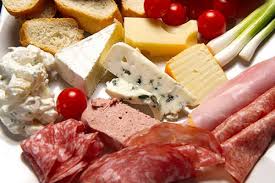 Listeria is a bacterium which is found in the soil and marine environment. The plants growing in the contaminated soil and the fish living in contaminated water can harbor the bacteria and can cause listeriosis. Animals can also be carriers of infection if they consume contaminated feed. The bacteria can survive in very low temperatures and it is hard to completely eliminate it.
Listeria is a bacterium which is found in the soil and marine environment. The plants growing in the contaminated soil and the fish living in contaminated water can harbor the bacteria and can cause listeriosis. Animals can also be carriers of infection if they consume contaminated feed. The bacteria can survive in very low temperatures and it is hard to completely eliminate it.
Foods likely to contain listeria are:
- Deli meats, hot dogs, etc.
- Dairy products especially raw or un-pasteurized milk
- Meat spreads and pâtés
- Smoked seafood
- Sprouts
- Soft cheese like feta, camembert and brie, made with un-pasteurized milk
Listeria Effect on You and Your Baby
Getting listeria in pregnancy can be harmful for the baby. If your immune system is strong and you do not have any underlying medical problem, it is unlikely that listeria will seriously damage your health but there is significant risk for the bay.
Listeria infection can result in a miscarriage or stillbirth. The infection can involve amniotic fluid and placenta and there is a greater risk of premature birth. Many infected babies are severely unwell at birth or become ill soon after birth. The main problems they can have are fever, difficulty in breathing, blood infection, skin sores, meningitis (central nervous system infection) and lesions on multiple organs.
Some infants born to mothers who get infected by listeria in pregnancy seem quite healthy at the time of birth but they develop meningitis or other signs of infection soon after birth. This is known as late onset listeriosis and the reason is that these babies acquire infection during the birth or labor. Very rarely, the babies get infected by another source than their mothers. The prognosis is not good and unfortunately the babies do not survive or have long term complications.
Symptoms of Listeria Infection in Pregnancy
The symptoms of listeria infection can appear around 2-30 days after getting infected. If you get infected by listeria in pregnancy you can experience flu like symptoms. Other symptoms include muscle pains, headache, nausea and vomiting. If the infection involves central nervous system there can be stiffness of neck, convulsions or disorientation. This infection can happen at any time during pregnancy but the greatest chances are getting it in the last trimester because at that time the immune system is not very strong.
If you experience any of these symptoms contact your doctor urgently and get a blood test to rule out this infection.
How Will Listeriosis Be Treated?
Listeria in pregnancy is treated by antibiotics. This treatment can protect the baby and can prevent the spread of infection from mother to the child. These antibiotics are also effective for babies having this infection.
How to Protect Your Baby from Listeria
1. Avoid Soft Cheeses

Soft cheeses like feta, camembert, brie, blue vein cheeses, queso blanco, queso fresco and panela can contain the bacteria and should be avoided. Make sure to read the label before you eat any type of cheese and avoid those varieties which are made by un-pasteurized milk. It is ok to eat hard cheese like cheddar. Cheese spreads and slices are also safe.
2. Heat Deli Meats Properly

Cold deli or luncheon meat sandwiches are not recommended and if you want to eat hot dogs or any kind of deli meat make sure to heat or steam it over 160 F. Meat spreads or pâtés should also be avoided and you should stay away from smoked fish unless it is cooked or heated again.
3. Thoroughly Cook All Meat, Poultry, and Fish
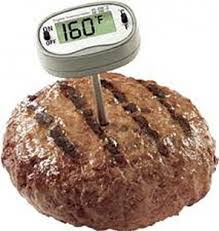
To kill all the bacteria it is important to thoroughly cook all kinds of meat. You can use a food thermometer to check that the temperature is more than 160 degree Fahrenheit. If you do not have a food thermometer, cook the meat to a point where it is no longer pink in the middle. Avoid eating raw fish and make sure it is opaque in the middle after you cook it.
Do not taste the food while it is still cooking and always reheat your leftovers before eating them.
4. Only Drink Pasteurized Milk
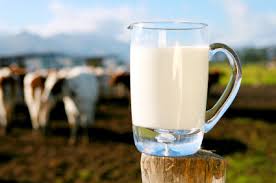
To be on the safe side never consume un-pasteurized milk or any dairy products made with it. Always read the labels and only drink pasteurized milk to avoid listeria in pregnancy.
5. Be Careful When Handling Food
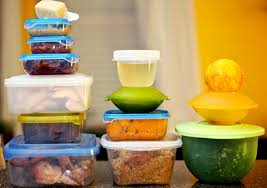
Never put raw and cooked food together. Keep the ready to eat meals separate and cover them. Whenever you are handling raw meat or poultry, clean all the boards and counters afterwards. If raw produce or poultry is contaminated and kept close with the cooked food, it can also contaminate the cooked or ready to eat food so be careful.
6. Wash Your Sponges and Dishcloths Regularly
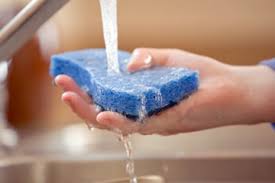
Sponges, dishcloths, kitchen towels and other materials used for cleaning can be loaded with bacteria. Make sure that you wash them in very hot water regularly and keep them clean and bacteria free. Same goes with the utensils and other appliances.
7. Make Sure That the Temperature in Your Fridge and Freezer Is Alright
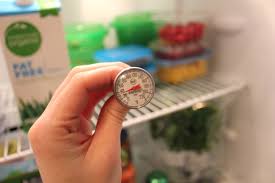
To eliminate the chances of bacterial growth in stored food it is extremely important to keep the temperature of the fridge between 35 to 40 degree Fahrenheit and the temperature of the freezer below zero.
